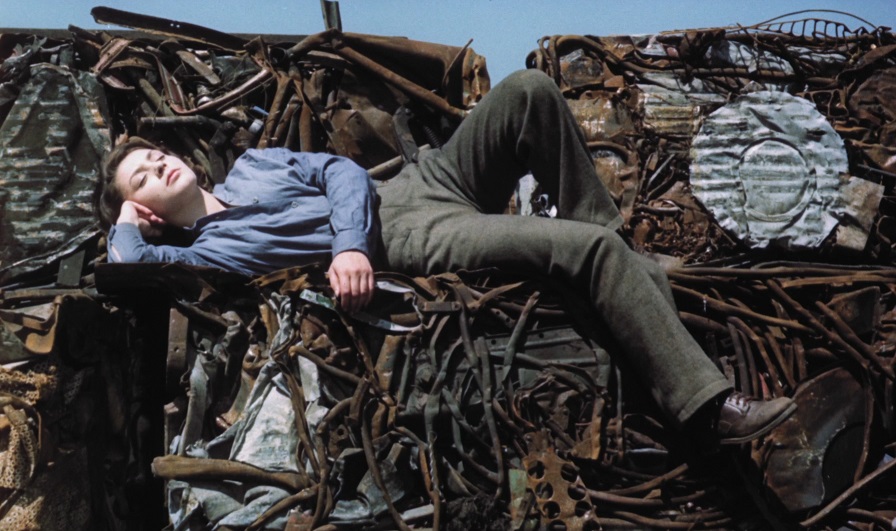
Directed in 1969 by Jirí Menzel, Larks on a string was immediately banned from all exploitation by the Czechoslovak censors. It was only after the fall of the Berlin Wall in 1989 that this ban was lifted. The film’s success was not long in coming, as it won the Golden Bear at the 1990 Berlinale. This film can now be rediscovered in a restored 4K version as part of the retrospective dedicated to the Czech filmmaker, « Comedy is a weapon« , organised by the distributor Malavida.
At the beginning of the fifties, in Kladno, a huge industrial complex, a few people clean a scrapyard while discussing Kant. They were doctors, philosophers, intellectuals, cooks… They are undergoing intensive re-education to lose their bourgeois reflexes. However, nothing affects them and they continue to talk about the world in a joyful nonchalance.
As with Closely watched trains (1966, Belles mécaniques), his first feature film, which won the Oscar for Best Foreign Language Film in 1968, Jirí Menzel enlisted the services of the novelist Bohumil Hrabal to write the screenplay for Larks on a string (1969). Likewise, as in the case of Closely watched trains, the script was based on Hrabal‘s novel Vends maison où je ne veux plus vivre.
One of the peculiarities of Larks on a string lies in its location: an open-air metal recycling industrial site. For the local authorities, this austere place is nothing other than a re-education through work centre. The other singularity lies in the subject matter. Indeed, the main protagonists are prisoners from the bourgeoisie who are suspected of being opponents of the regime in place. Here they are relegated to the rank of workers recycling metals to build machines but also (and perhaps above all) the socialism that has just won in 1948.
Menzel and Hrabal therefore use a stark location and subject matter to tell their story. This first impression is reinforced by the film’s opening shot, which shows an aerial view of the place. This opening sequence seems to want to engage the spectators in a documentary. However, we are in fact in a fiction whose content is a biting and critical comedy because « comedy is a weapon« !
The counterpart of the group of men described above is another group composed of a few female souls condemned for having tried to leave the country illegally. Thus we have two distinct and separate groups where mixing is strictly forbidden. There is no interaction allowed between men and women. Secret encounters are therefore stealthy. Is it possible to get married in such conditions?
Underneath its air of light comedy, Larks on a string deserves the audience’s full attention. Many of the dialogues have a double meaning, supported by gestures with an erotic subtext. The messages on the banners are explicit and propagandistic. Menzel makes fun of them through his direction, dialogue and contextualisation. Later, the character played by Vaclav Neckar, already seen in Closely watched trains, will list the noble acts. Work will not be mentioned because, among the struggles led by the protagonists, there is the one against zeal. The work is certainly done, but at an unconstrained pace. This absence of constraint is a reflection of the film as a whole. Indeed, Menzel puts into images a story that is light in appearance and yet, if one pays attention, heavy in meaning. Everything is simply rendered by the filmmaker, everything seems to flow because the cleverly conducted narrative benefits from a constant balance between derision and gravity. The reading of Larks on a string must be careful because this film has an unfeigned political impact.
